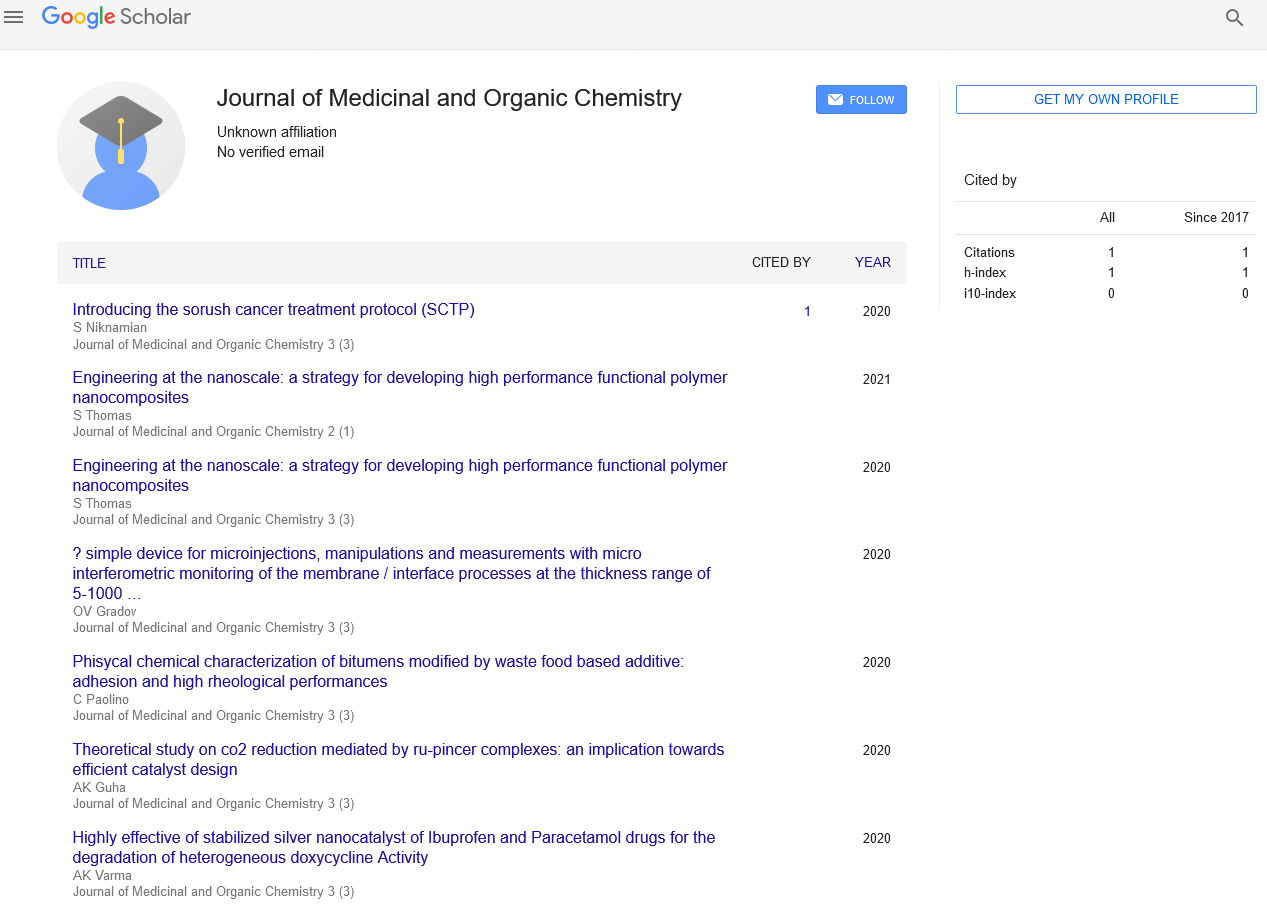Perspective - Journal of Medicinal and Organic Chemistry (2023) Volume 6, Issue 6
Unveiling the Human Experience: The Depths of Psychosocial Research
- Corresponding Author:
- Sangeta S Chavan
Department of Psychosocial Science,
Kohoto University,
Tokyo,
Japan
E-mail: schan@northwell.edu
Received: 15-Nov-2023, Manuscript No. jmoc-23-121590; Editor assigned: 21-Nov-2023, PreQC No. jmoc-23-121590 (PQ); Reviewed: 06-Dec-2023, QC No. jmoc-23-121590; Revised: 13-Dec-2023, Manuscript No. jmoc-23-121590 (R); Published: 29-Dec-2023, DOI: 10.37532/jmoc.2023.6(6).151-152
Introduction
In the intricate tapestry of human existence, the interplay between the psychological and social dimensions shapes the contours of our experiences, behaviors and well-being. Psychosocial research, a multidisciplinary endeavor that bridges the realms of psychology and sociology, offers a profound lens through which to understand the complex interactions between the mind and social environment. This article delves into the nuanced world of psychosocial research, exploring its foundational principles, the transformative power of its findings and the implications for fostering mental health and societal well-being.
Description
Defining psychosocial research
Psychosocial research is a dynamic field that seeks to unravel the intricate connections between psychological processes and social factors. It examines how individual experiences, emotions and behaviors are influenced by social, cultural, economic and environmental contexts. By blending insights from psychology and sociology, psychosocial research provides a holistic understanding of the human experience.
Individual and collective perspectives: At its core, psychosocial research recognizes the interconnectedness of individual and collective experiences. It explores the ways in which personal well-being is entwined with societal structures, relationships and cultural influences.
Biopsychosocial model: The biopsychosocial model, a foundational framework in psychosocial research, posits that health and well-being are shaped by the interplay of biological, psychological and social factors. This holistic approach considers not only the biological aspects of mental health but also the impact of social and psychological determinants.
The transformative power of psychosocial research
Mental health understanding and stigma reduction: Psychosocial research has been instrumental in demystifying mental health issues and challenging stigmas surrounding them. By investigating the psychological and social factors contributing to mental health challenges, researchers contribute to a more empathetic and informed societal perspective.
Trauma-informed care: Understanding the psychosocial aspects of trauma has led to the development of trauma-informed care approaches. Recognizing the widespread impact of trauma on individuals and communities, psychosocial research informs therapeutic interventions that prioritize safety, trust and empowerment.
Social determinants of health: Psychosocial research has shed light on the social determinants of health, emphasizing how factors such as socioeconomic status, education and access to resources influence physical and mental well-being. This knowledge is crucial for developing policies that address health inequities.
Psychosocial research in practice
Community interventions: Psychosocial research informs community-based interventions that aim to improve mental health outcomes. These interventions may include programs addressing social isolation, promoting mental health education and fostering supportive environments.
Cross-cultural studies: The cross-cultural dimension of psychosocial research allows for a deeper understanding of how cultural norms and practices impact mental health. This knowledge is essential for developing culturally sensitive interventions that respect diverse perspectives.
Challenges and opportunities
Interdisciplinary collaboration: Psychosocial research thrives on interdisciplinary collaboration, but bridging the gap between psychology and sociology poses challenges. Creating spaces for meaningful collaboration and fostering a shared language between disciplines are ongoing endeavors.
Ethical considerations: The exploration of sensitive topics within psychosocial research, such as trauma or mental health stigma, necessitates careful ethical considerations. Ensuring the well-being and autonomy of research participants is paramount in this field.
The future of psychosocial research
Advancements in technology: The integration of technology, including digital mental health interventions and data analytics, holds promise for advancing psychosocial research. These tools enable researchers to collect and analyze data on a larger scale, providing insights into diverse populations and contexts.
Preventive psychosocial interventions: As our understanding of psychosocial factors deepens, there is a growing emphasis on preventive interventions. By addressing social determinants and promoting mental health from a holistic perspective, researchers aim to reduce the incidence of mental health challenges.
Conclusion
In the pursuit of unraveling the complexities of the human experience, psychosocial research stands as a beacon of insight, offering a nuanced understanding of the interplay between the mind and society. From shaping mental health policies to informing community interventions, the impact of psychosocial research is far-reaching. As we navigate the challenges of the present and peer into the future, the collaborative efforts of psychologists, sociologists and other allied fields continue to illuminate the path toward a more compassionate, inclusive and psychologically resilient world.

